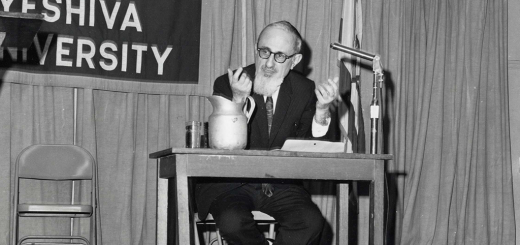The End of Heterodoxy?

Ori Pomerantz is one of our more frequent commenters. He asked the following question as a comment to a previous post, seeking “our” response. So I sent the question around, and determined that several C-C writers are willing to attempt answers. I suspect that one of the things we will discover is that there is no one response, but a collection of individual opinions with some common threads.
We’ll post the answers over the course of the next week — but here’s the question:
One of the common themes of this site is the failure and futility of the heterodox movements. I’d like to raise a hypothetical situation, and read what you think about it. Please forgive me if this reads as disrespectful – that is not my intention.
Imagine that tonight there was a miracle, and tomorrow morning all the rabbis and chazzanim of the heterodox movements were to wake up orthodox. After praying shachrit the men would all go to their synagogues’ office, and tell the board that they cannot stay in their position unless the synagogue turns orthodox. The women would just resign.
If such were to happen, the heterodox movements would be exposed as a sham, and be unable to continue. The lay heterodox Jews would have two choices:
1. Turn orthodox. Move to within walking distance of the synagogue if necessary, make kasher the kitchens, get a divorce if intermarried, start observing Shabbat, start observing Niddah, etc.
2. Give up on Judaism completely. Just as Irish-Americans are not very Irish, and Italian-Americans are not very Italian, decide that Judaism must have been good for their grandparents – but they are not sure why.
How many of them do you think would become Ba’aley Tshuva and choose option 1? How many would choose option 2?




Playing within the scenario, overwhelmingly choice 2, though for a wide variety of reasons. Some will object to O on moral grounds (mandated gender roles, unwillingness to accept homosexuality as a valid lifestyle choice, general lack of an idea of individual rights) while others will choose not to do so simply because the resources (physical, spiritual, and financial) to be O exceed what they are willing to spend for the perceived benefit.
Also a significant fraction of those who choose choice 1 will assert (correctly) that many halachic decisions which were resolved as they were in order not to encourage the heterodox should be revisited.
In reality I believe that the stunned survivors of C and R will in a few days re-open their shuls and start again with new leadership. The idea that this mass resignation would cause the heterodox movements to be ‘unable to continue’ vastly understates the strength of belief some of the laiety have. After all, if the same thing happened to O, what would you expect the result to be?
Kol Tuv
Larry
Seems like the would be faced with the same choices Ezra gave the babylonian Jews.
I think reducing it to two choices shows an “Amerocentric” perspective. It must be remembered that for most communities outside North America, Reform and Conservative are very much fringe phenomona. The vast majority of Jews in communities like Britain, South Africa and Australia affiliate with Orthodox shuls (and may send their children to Orthodox day schools) yet are not frum in practice — they tend to be selectively practising (ie kosher home but not out, go to shul but not shomer shabbat). A generation ago this was the case in the US as well — but the historical development of C and R in post-WW2 America resulted in a situation today where only observant people affiliate with O.
Were C and R simply to “disappear” (which is unlikely), some would choose 1, others 2, but I think many others would choose 3 (ie affiliate with O shuls, but continue living more or less as they do).
Natenal Livni,
Ignorant Chiloni question – what were those choices? To either come back to Israel and be observant or stay at home, or is there a deeper story I don’t know about?
Habib,
You’re right – I should have thought about the option of going to an Orthodox shul and not being observant at home.
Ori,
He instructed them all to divorce their Gentile wives that they married in Babylon and return to Hashem.
That part they listened to. Too bad they didn’t listen to his call to return to the Land of Israel. Chazal state that if they would have listened, the 2nd Temple would never have been destroyed.
Two of my four siblings intermarried. The two others haven’t married and I wouldn’t wager on both not intermarrying.
My youngest son is named Ezra Benzion. Yeah, it’s confrontational and very much meant to be for BOTH parts of what Netanel commented on.
anon,
Sorry, I don’t understand what you mean.
If you want to make the case that intermarriage happens, and that some people who are intermarried have nephews with Hebrew names, then that’s hardly in dispute. For the record, I am intermarried. I also have nephews with Hebrew names.
If you are trying to say that intermarriage is irrelevant, because some people who are intermarried have relatives who preserve Judaism, then that is again not in dispute. It wasn’t in dispute when my grandfather’s brother intermarried and his family mourned him for dead either.
Are you trying to make the case that Judaism is preserved by people who are intermarried as much as by Jews who marry other Jews? If so, could you please state it more clearly? Rabbi Menken doesn’t mind a good argument, otherwise he wouldn’t let me post here, but it’s hard to argue with a position that is not stated clearly.
The congregants will go on with their brand of Judaism. Putting up only two choices is having to make a false choice. The majority will find other leaders and go on as they always have, to a greater or lesser extent. Try a less extreme version. If a conservative or Reform rabbi made a Yom Kippur drasha and demanded that all the congregants be shomer shabbat, keep strictly kosher, and learn three times a week, do you think that would happen? If a MO rabbi stood up and told his congregation to only drink cholov Yisroel, strictly observe nidda, and not hold by the eruv, do you think the majority would listen? You can keep taking it to the right, and finally you may not be able to move further to the right, but only there will you find the congregation that will listen. Does that prove anything except that people will stay in their religious observance/belief regardless of what the congregational leader says? I think not.